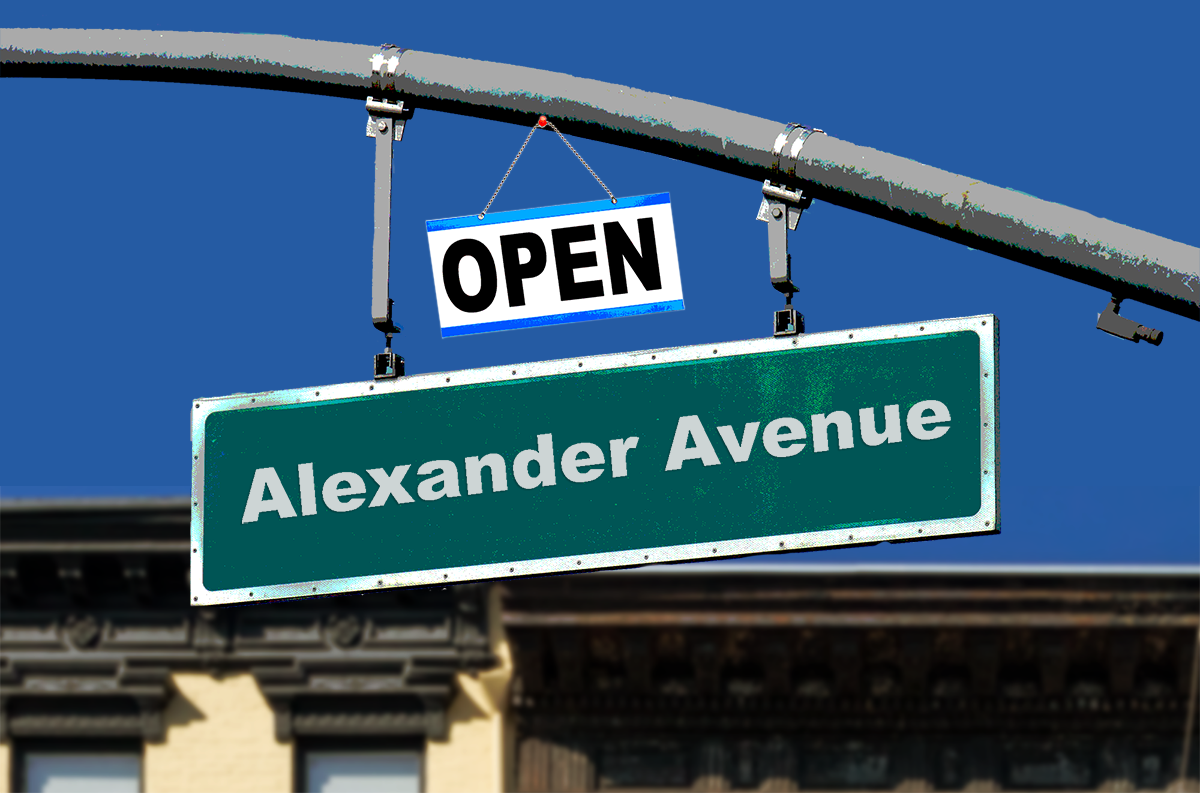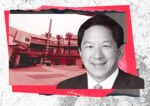Trending
Bedford 2.0? Can a street filled with small, trendy retail take off in the South Bronx?
Mott Haven’s Alexander Avenue is becoming a hotspot for small businesses

Before Noëlle Santos struck a deal to rent 2,300 square feet along Alexander Avenue for the only independent bookstore and wine bar in the Bronx, she was already well-aware of the gentrification debate that has gripped the neighborhood for years—and of the role her business might inadvertently play in adding fuel to it.
“There are many people in the Bronx that feel like this is too fancy: books, wine,” she said of her store The Lit. Bar, which is slated to open this month. “’That’s very white.’ That was some of the reaction I received when I first announced the concept.”
To combat this, Santos said she has tried to make sure her store maintains strong ties to the community by hiring locally and giving space in the store to local authors and artists. And rather than just taking the first offer she got from a landlord, Santos said she waited until one came from a company— JCAL Development —whose perspective on the neighborhood was similar to her own.
“I dug into them,” she said. “I researched other tenants that they worked with, and the consensus was all the same: that they had deep roots in the Bronx, that they are conscious developers.”
The Lit. Bar will join multiple other trendy businesses clustered along Alexander Avenue, including the hip-hop themed restaurant Beatstro, the flagship location of the Famous Nobodys clothing line, the sushi restaurant Ceetay and the Italian restaurant Nobodys Pizza. While the stretch of stores occupies a fairly small part of Alexander Avenue and Mott Haven, it plays an outsize role in discussions about the neighborhood’s future. Some community members view it with suspicion and as a sign that they will soon be priced out, but business owners and brokers are confident that they can galvanize community support and attract enough customers to thrive.
“What we’re doing is very new, not just for the area but for New York City,” said Alfredo Angueira, who runs Beatstro. “It does feel like a little bit of an outlier, but the more that you’re in the community and the more that you’re out and about, it actually feels very authentic.”
Small stores, low rents
Alexander Avenue is a fairly short road, stretching for less than a mile in Mott Haven between 132nd Street and 143rd Street. It includes several historic row houses, the NYPD’s 40th Precinct building and multiple public housing projects, while the new businesses are largely clustered between 132nd and 134th streets.
Retail interest started to pick up in the area about five or six years ago, as before that, the space for shops simply was not there, according to Lee & Associates principal Steve Lorenzo, who has worked in the borough for decades.
“The commercial availability for retail has been very limited,” he said. “What we’ve had there are mainly storage, warehouse, industrial, commercial-type units, and now what we’re seeing is the intent to retrofit a lot of those spaces.”
Lorenzo described the Mott Haven Bar & Grill at 1 Bruckner Boulevard as a pioneer of bringing more retail to the neighborhood and said the sector picked up more steam in 2015, shortly after the Chetrit Group and Somerset Partners purchased waterfront sites at 101 Lincoln Avenue and 2401 Third Avenue for $58 million. (The firms then sold those sites to Brookfield Property Partners last year for $165 million.)
Industrial sites are now being retrofitted for retail space, and more stores have started to move in and open as more new construction in the neighborhood gets finished, Lorenzo said. And although high retail rents have been a well-publicized problem for small businesses in New York for years, prices are still comparatively cheap in the South Bronx.
Prices for retail space along Alexander Avenue tend to be between $35 to $40 per square foot, which is very low in today’s retail market, according to Lorenzo. The numbers are nothing compared to Bedford Avenue in Williamsburg, which has been seen as both a potential model and a potential cautionary tale for what could happen in Mott Haven.
A report from the Real Estate Board of New York analyzing Brooklyn retail over the summer found that rents along the street were at $351 per square foot between Grand Street and North 8th Street and at $168 per square foot between North 8th Street and North 12th Street.
“Rents are relatively inexpensive in the Bronx relative to other markets,” said Somerset Partners’ Keith Rubenstein, an active investor in Mott Haven. “It’s a good opportunity to capture value by opening a business there.”
Andrew Roth, also of Somerset, said the street reminded him a little bit of Bedford Avenue in its earlier years of development, although there are notable differences.
“It was further along than Alexander is right now,” he said of Bedford, “but to me, there’s a little bit of the DNA on Alexander Avenue.”
Retailers and developers active along Alexander Avenue had mixed responses to the frequent comparisons their street gets to Brooklyn’s retail king, alternately downplaying and emphasizing the area’s similarities to the borough.
Santos, for example, said she did not want to describe the community as “hipster-ish” because it harkens Brooklyn too much, and she maintained that Brooklyn has a very distinct feel from Mott Haven.
“It feels very much still like the Bronx,” she said. “I live in the South Bronx but in a different neighborhood, and when I go leave from home and come here, I still feel like I’m home.”
Joshua Weissman of JCAL Development echoed this point. His firm is behind the development at 131-135 Alexander Avenue, which is leasing space to both The Lit. Bar and Beatstro, and he said they did not use Brooklyn as a model for their own projects.
“I don’t think we ever thought of it as doing a mini-Bedford,” he said of Alexander Avenue. “We just want to make it the destination for the Bronx for dining and culture.”
“We don’t compare ourselves to Brooklyn. That’s not our mindset. That’s not what we’re going after,” he continued. “We’re the South Bronx. The South Bronx is a place of its own with its own culture, its own identity, and that’s what we embrace.”
Lorenzo was more explicit about the Brooklyn comparison, calling the Alexander Avenue stretch of Mott Haven “our little Williamsburg.” However, he still acknowledged that there were some stark differences, including the housing stock and the residents.
“I think Mott Haven is unique because the people there are unique,” he said, “and I think that you’re not going to see that really accelerated gentrification. I think you’re going to have a real Bronx flavor, a real mix happening here.”
Who is it for?
Although multiple business owners along Alexander Avenue insisted that their stores had grassroots support from the community, there is still some tension in the neighborhood over whether the stores are geared more toward Mott Haven’s existing population or toward the people likely to move in when more new developments arrive.
Neighborhood activist Mychal Johnson described that stretch of Alexander Avenue as existing “in its own little world.” He appreciated that the shops were bringing more art and culture to the neighborhood but is nervous that they are a precursor to rising rents and a growing economic divide within Mott Haven.
“I don’t see a lot of existing residents with lower economic means at these locations,” he said, adding, “That was the fear: the tale of two cities within one neighborhood.”
Santos disputed this, saying that getting The Lit. Bar going has already been a community effort. She plans to further prevent it from becoming isolated by focusing more on the experiential retail trend to attract customers.
“We’re going very heavy on events because we’re offering something that cannot be offered online,” she said. “Jeff Bezos is not going to pour you a glass of wine and recommend you his favorite book.”
Angueira said the group of local business owners on the street is very tight knit and sees themselves as more cooperative than competitive, as they all share the goal of bringing more people to the neighborhood to help improve their businesses.
“We have our own group texts. We speak to each other constantly,” he said. “We call ourselves the Alexander Avenue Avengers.”
The relationship between the stores is nothing formal along the lines of a Business Improvement District, Angueira said. Rather, the owners found each other organically given the similarities between what they were doing and found that sharing information was a good way to benefit them all.
Angueira pointed to the example of Bronx Native, a clothing store nearby on Lincoln Avenue that had been hosting an open mic night but outgrew its space. He volunteered to host the open mic night at Beatstro instead, giving more exposure to his venue and another opportunity for Bronx Native to sell its merchandise.
“When you find these other partners, these other businesses in the neighborhood doing similar things, it’s a natural, synergistic effect,” he said. “You kind of naturally gravitate towards one another.”
Brookfield looms
The major development hanging over the future of Mott Haven is still Brookfield Property Partners’ megaproject at 2401 Third Avenue and 101 Lincoln Avenue which will include about 1,300 residential units across seven buildings and 30,000 square feet of commercial space. Executive vice president Ben Brown said the existing local retail was a major factor in making Brookfield feel comfortable about buying the site.
“We really liked it,” he said, “and I think it was definitely a big part of the whole story and the whole investment thesis we had generally for the South Bronx.”
Brookfield has not made any major decisions about the type of retail they will include in the project, but the company has a history of getting creative with its commercial space. Brookfield Place in Lower Manhattan will be home to the city’s first cashier-less Amazon Go store, and the firm plans to convert at least 100 of its malls into “mini cities” by adding office and residential space to them.
Brown maintained that the sector was doing well in the Bronx overall because rents are still reasonable and the demographics are good, as stores there are geared more toward serving locals than tourists.
“This is what you dream of as a developer, where you have local, organic, interesting retail already there,” he said, “and then you’re just building housing to complement it.”




